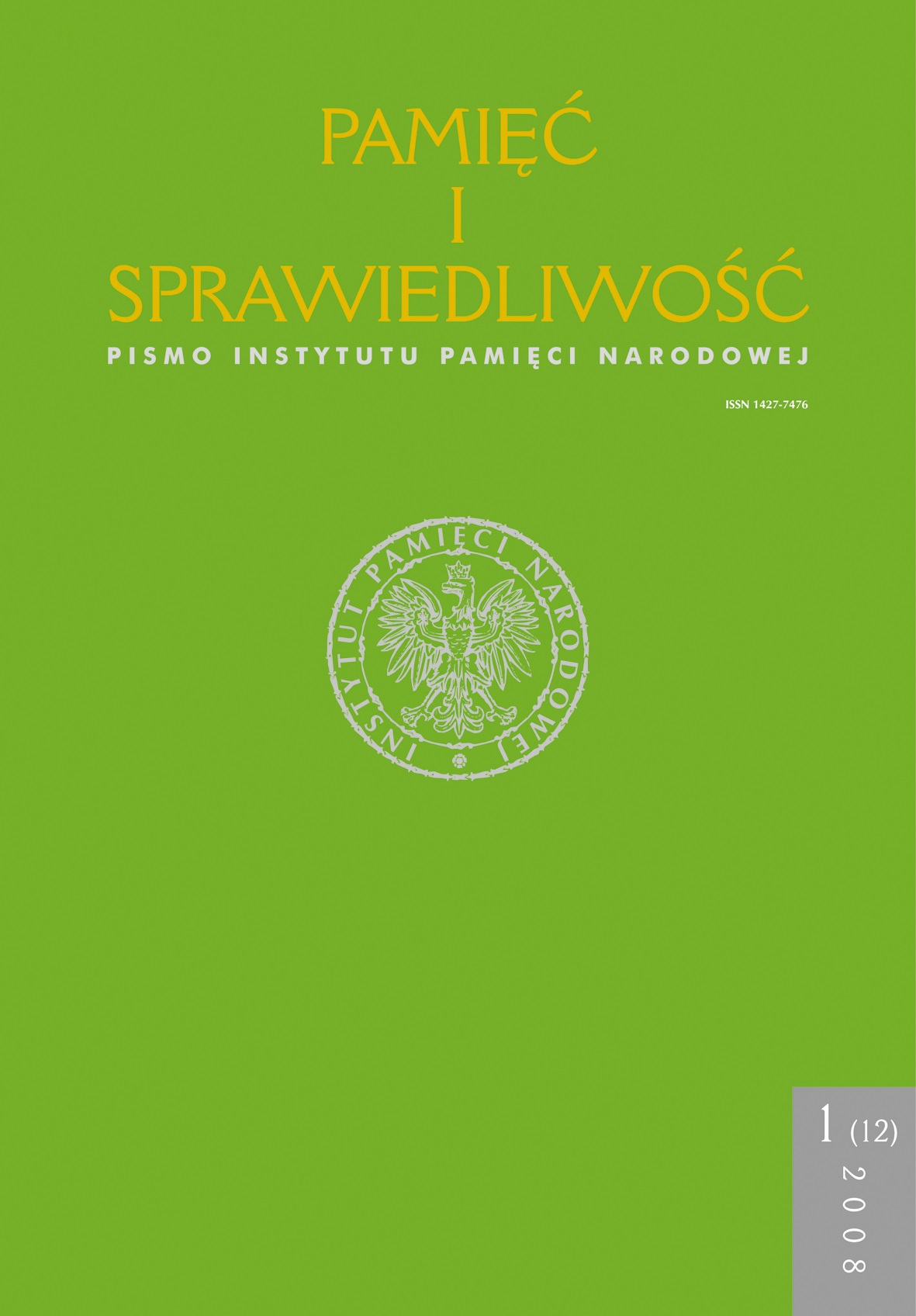Próby „legalizacji” Obozu Narodowo-Radykalnego (Grupy „Szańca”) i wejścia jego przedstawicieli w struktury władz RP na wychodźstwie 1939–1941
Pamięć i Sprawiedliwość, Tom 12 Nr 1 (2008), strony: 255-265
Data publikacji: 2008-06-30
Abstrakt
The article is a contribution to the history of the Polish Authorities in exile
during WW II. It describes the attempts of “legalization” of the National Radical Camp – the “ABC” group (Obóz Narodowo-Radykalny “ABC” – ONR “ABC”) and the unsuccessful endeavors of introducing its representation into Polish quasiparliament in exile: National Council (Rada Narodowa) during the years: 1939–1941.
Since the autumn 1939 the political circle of the Radical National Camp – the “ABC” group, during WW II generally called the “Szaniec“ (“Rampart”) group, headed by secret and hierarchic Polish Organization (Organizacja Polska), has built its own conspiracy: military organization – Salamander Union (Związek Jaszczurczy) and underground administration Civilian Commissioners (Komisariat Cywilny).
From 1939 to 1940 the “Szaniec” group sent two official emissaries, who were to represent this political circle at Polish Government in exile headed by general Sikorski. Tadesz Gluziński was the fi rst emissary who left occupied Poland at the end of December 1939. He died in Hungary having his legs frostbitten after trespassing Tatra Mountains and Slovakia.
The next, Mieczysław Harusewicz reached Paris at Easter 1940. Harusewicz’s attempts to join the National Council – as an official representative of ONR “ABC”, despite the initial declarations of the prime minister Sikorski, failed.
After the military collapse of France, Harusewicz passed to Great Britain, where he established Committee of the National Radical Camp (ONR). Unfortunately, he was not successful in the efforts undertaken to introduce his organization to the system of Polish political parties which based the Polish authorities in exile. The members of ONR did not managed to gain the political importance among the parties consisting the government of gen. Sikorski (except Stronnictwo Narodowe
– National Party) nor introduce its representative to The National Council. It was mainly caused by the prewar “black legend” of ONR, and the accusations of anti-Semitism, anti-democratism, fascism and last but not least, the consideration of the Polish authorities for the English public opinion.
 Język Polski
Język Polski
 English
English
 Deutsch
Deutsch
 Français (France)
Français (France)
 Italiano
Italiano
 Русский
Русский


 PDF
PDF
